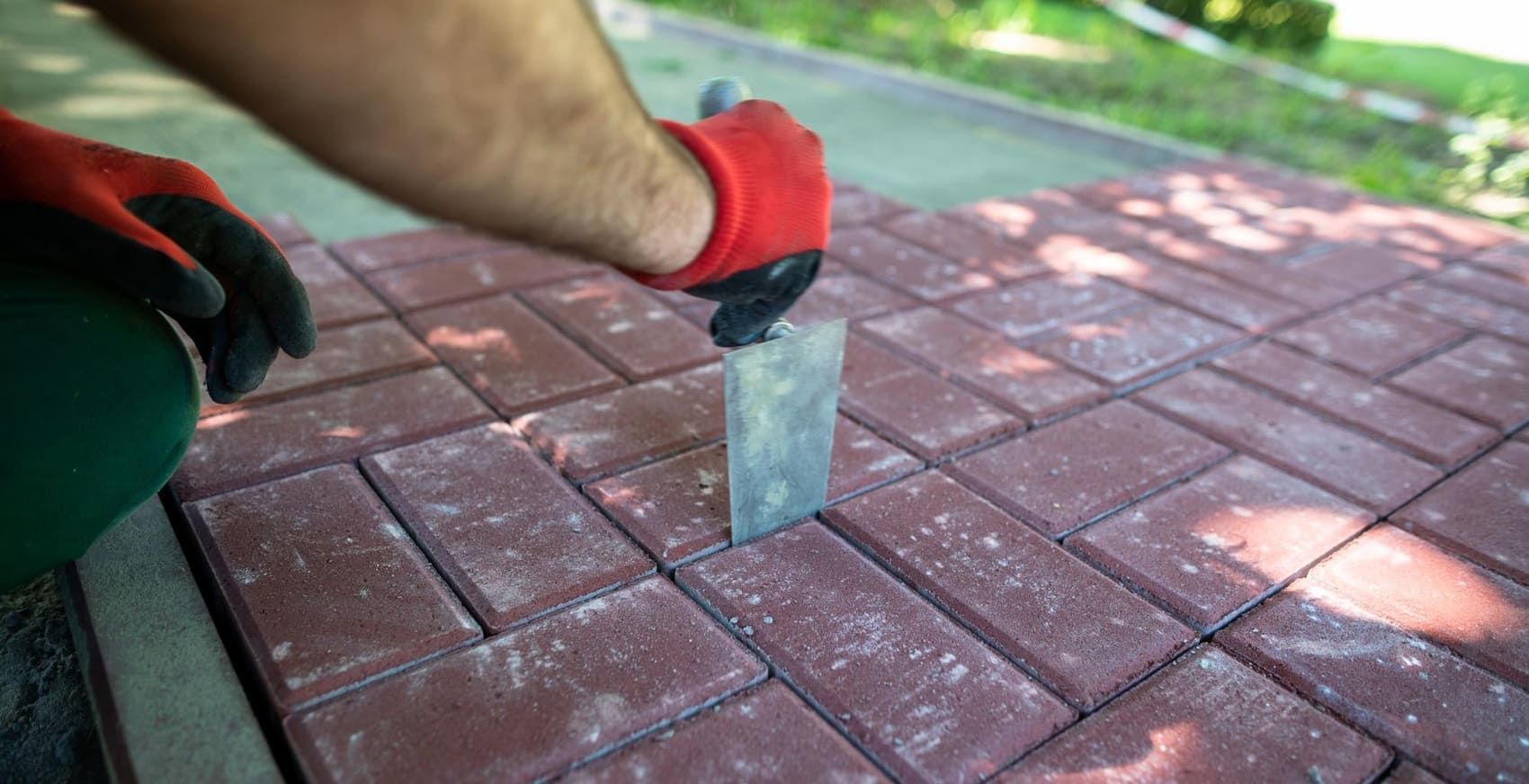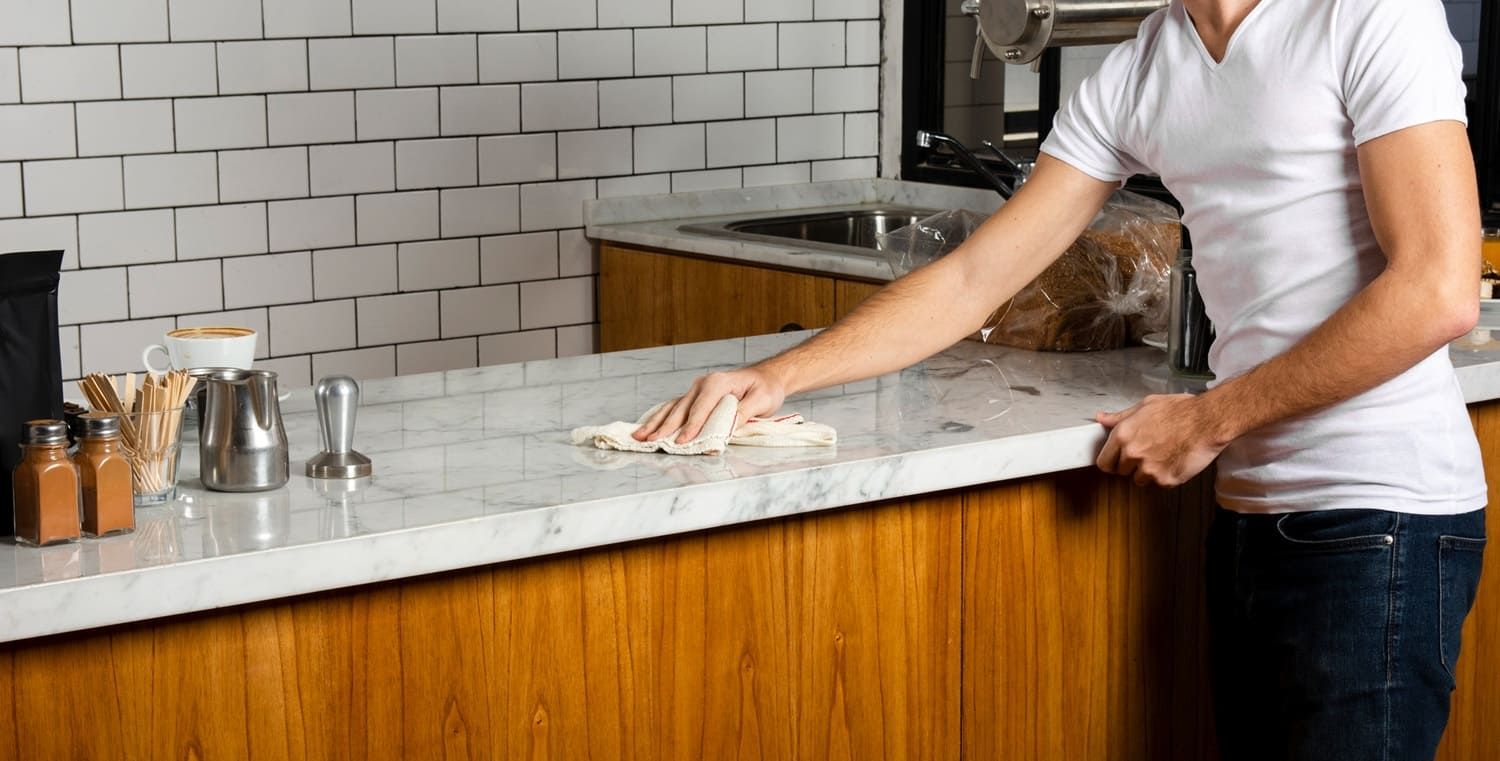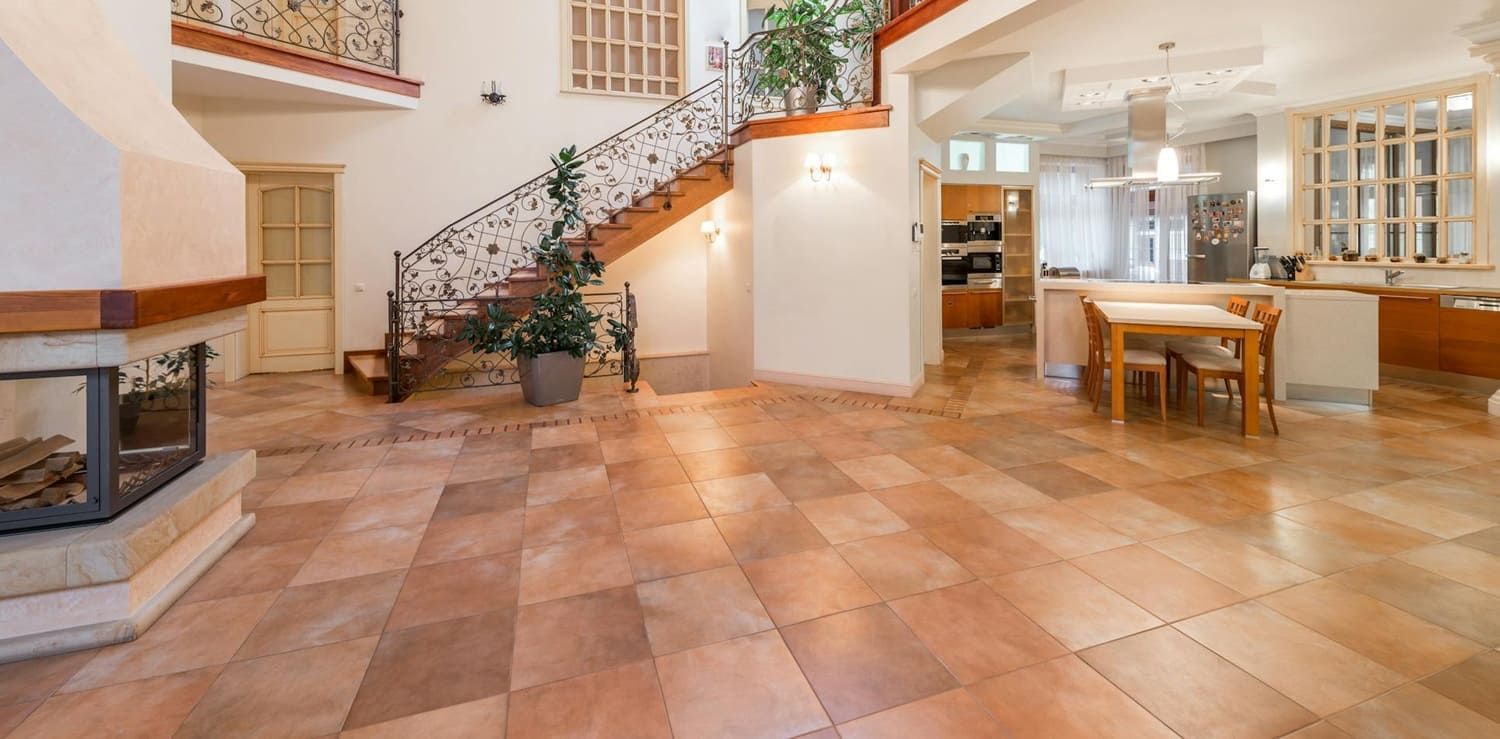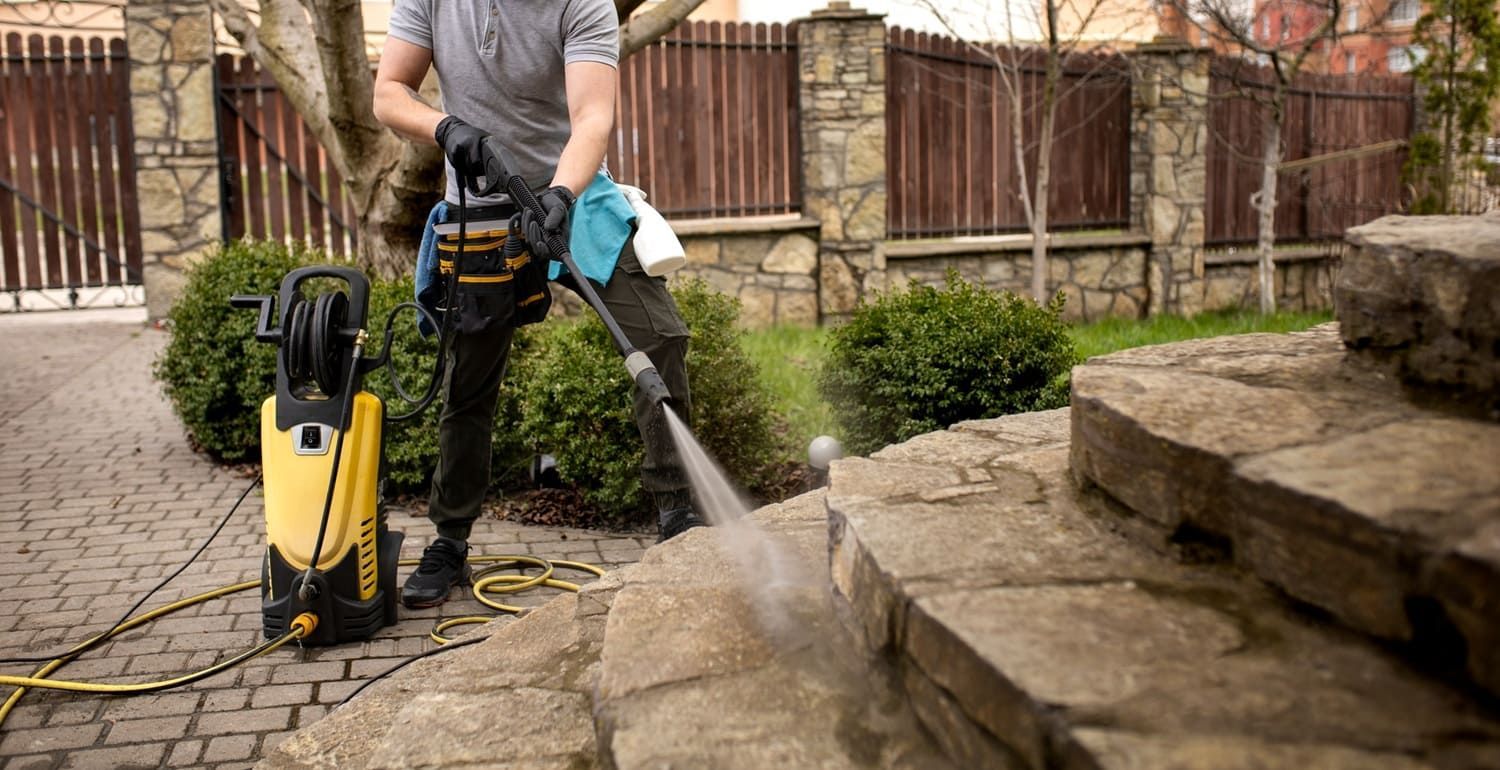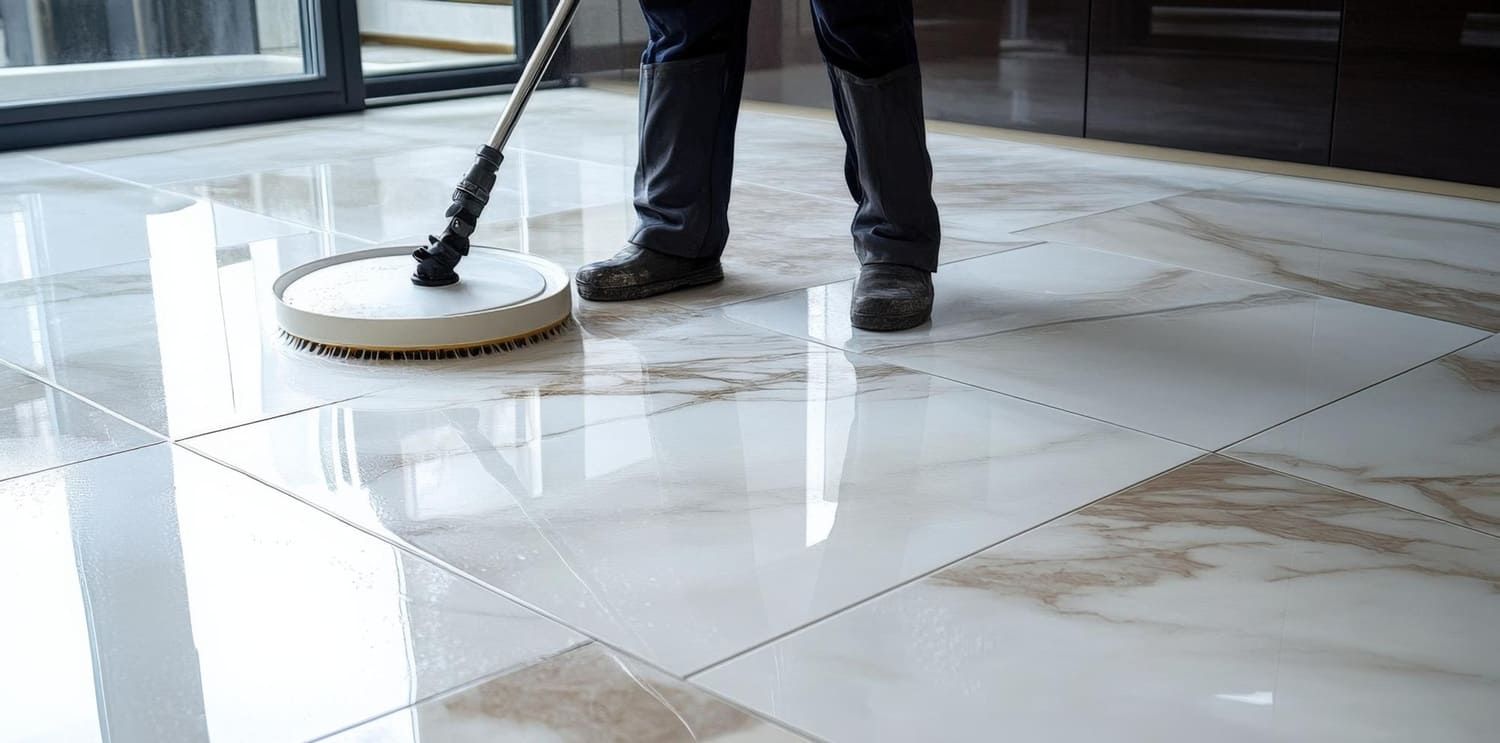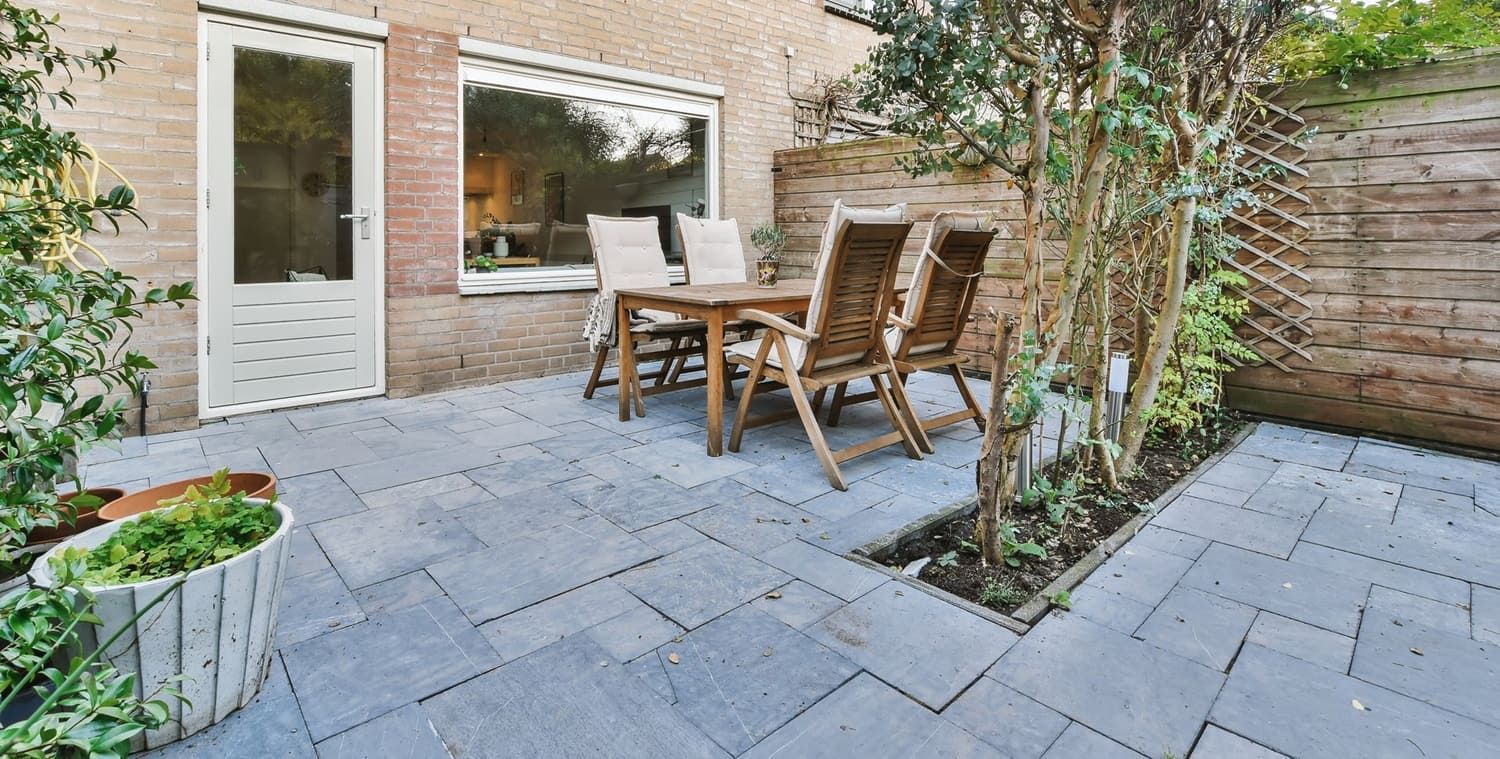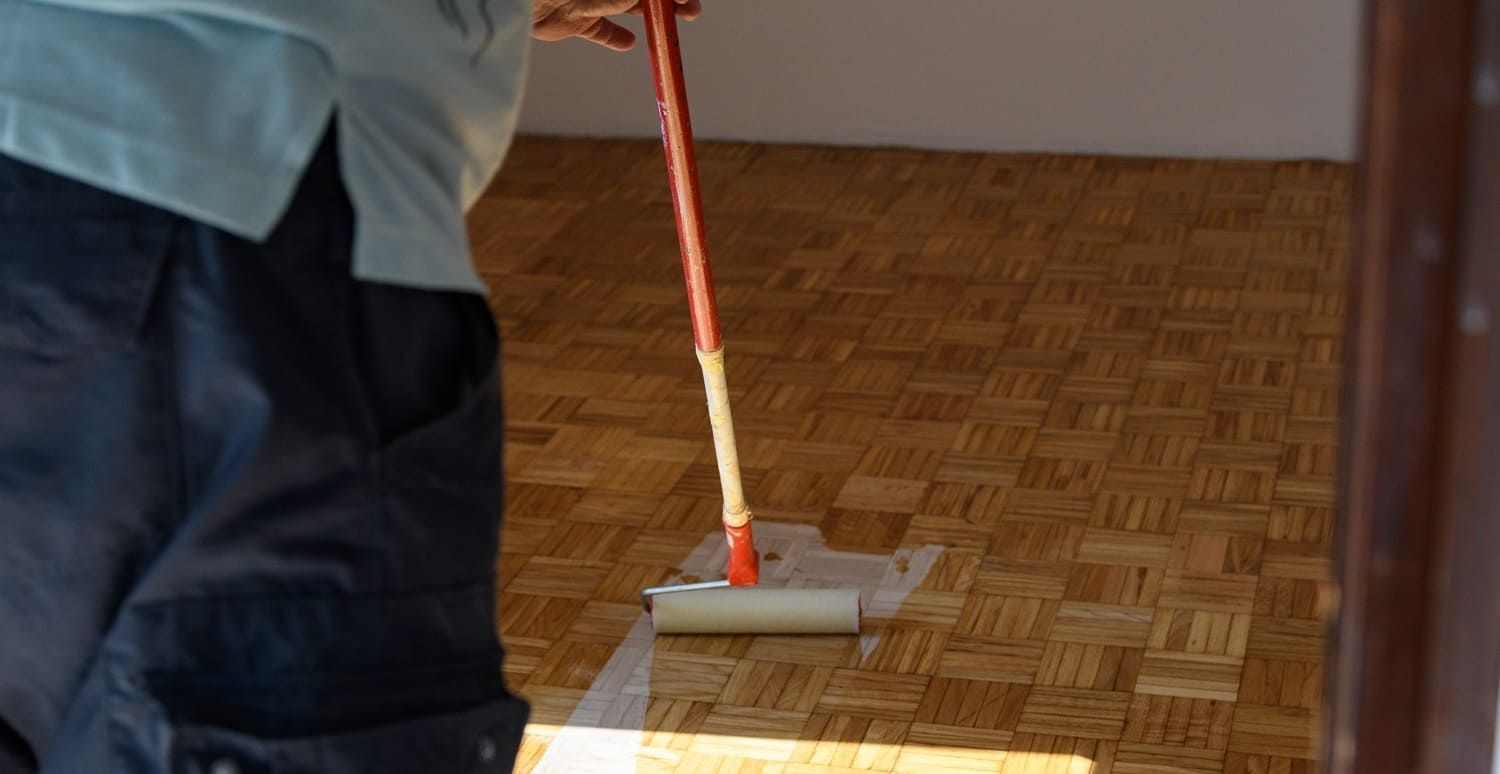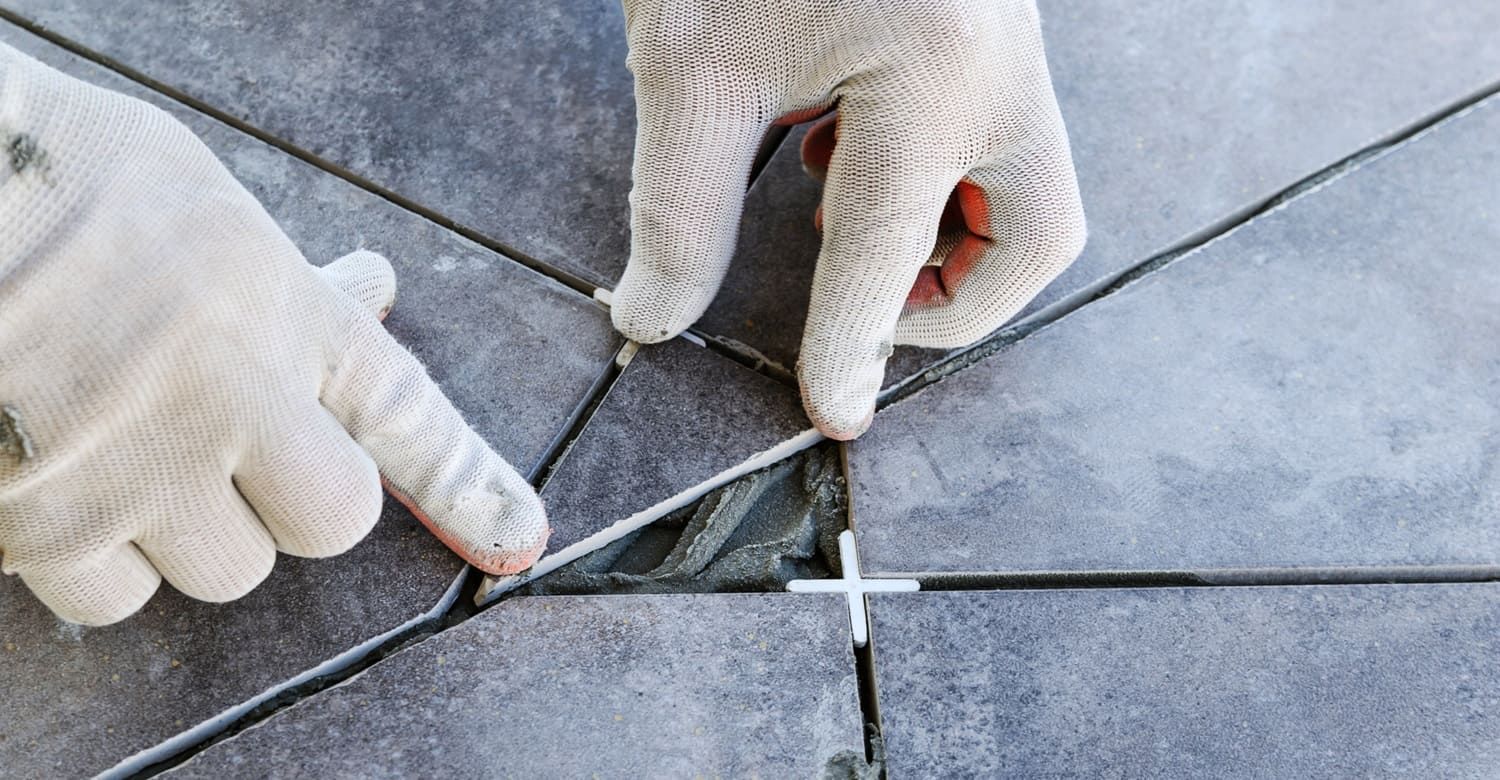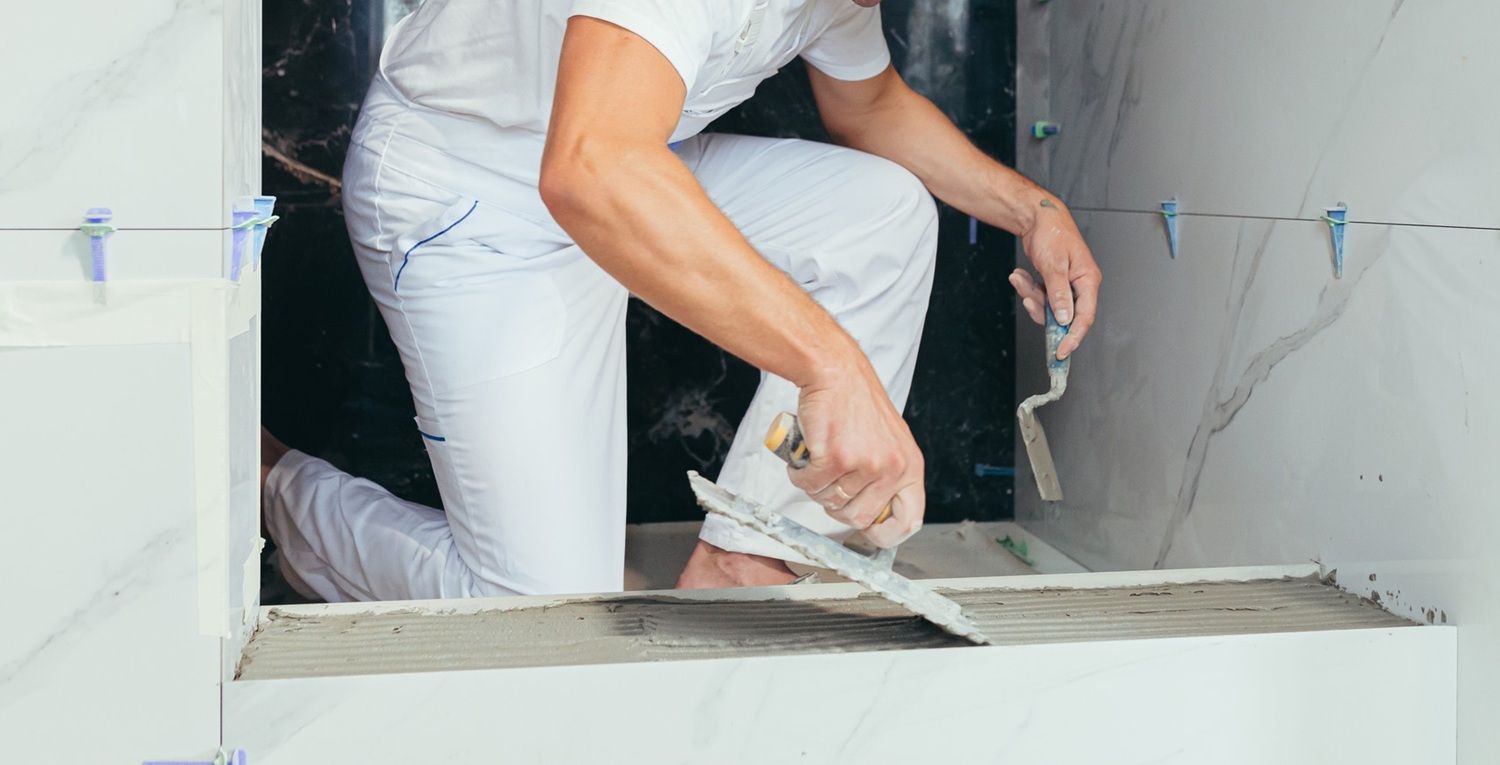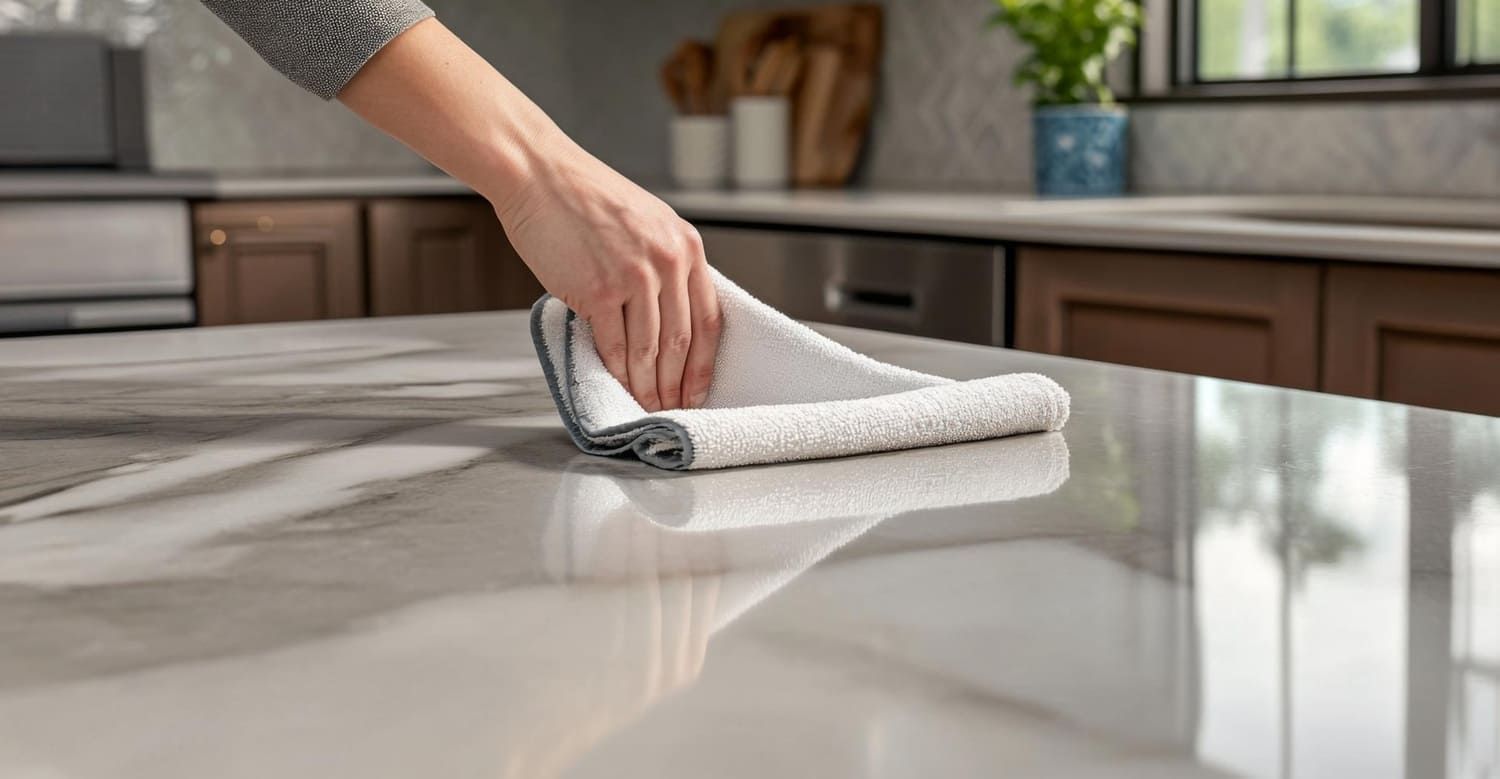ARIZONA'S BEST STONE, TILE, AND GROUT CLEANING SERVICES
Is Your Grout Turning Dark? The Top Causes of Grout Discoloration
Grout is an essential component in any tiled surface, serving as the binding agent that holds tiles in place and prevents moisture from seeping underneath them. However, over time, you might notice that your once pristine grout is starting to turn dark or discolored. Understanding the causes of grout discoloration can help you address the issue effectively and keep your tiled surfaces looking fresh and clean.
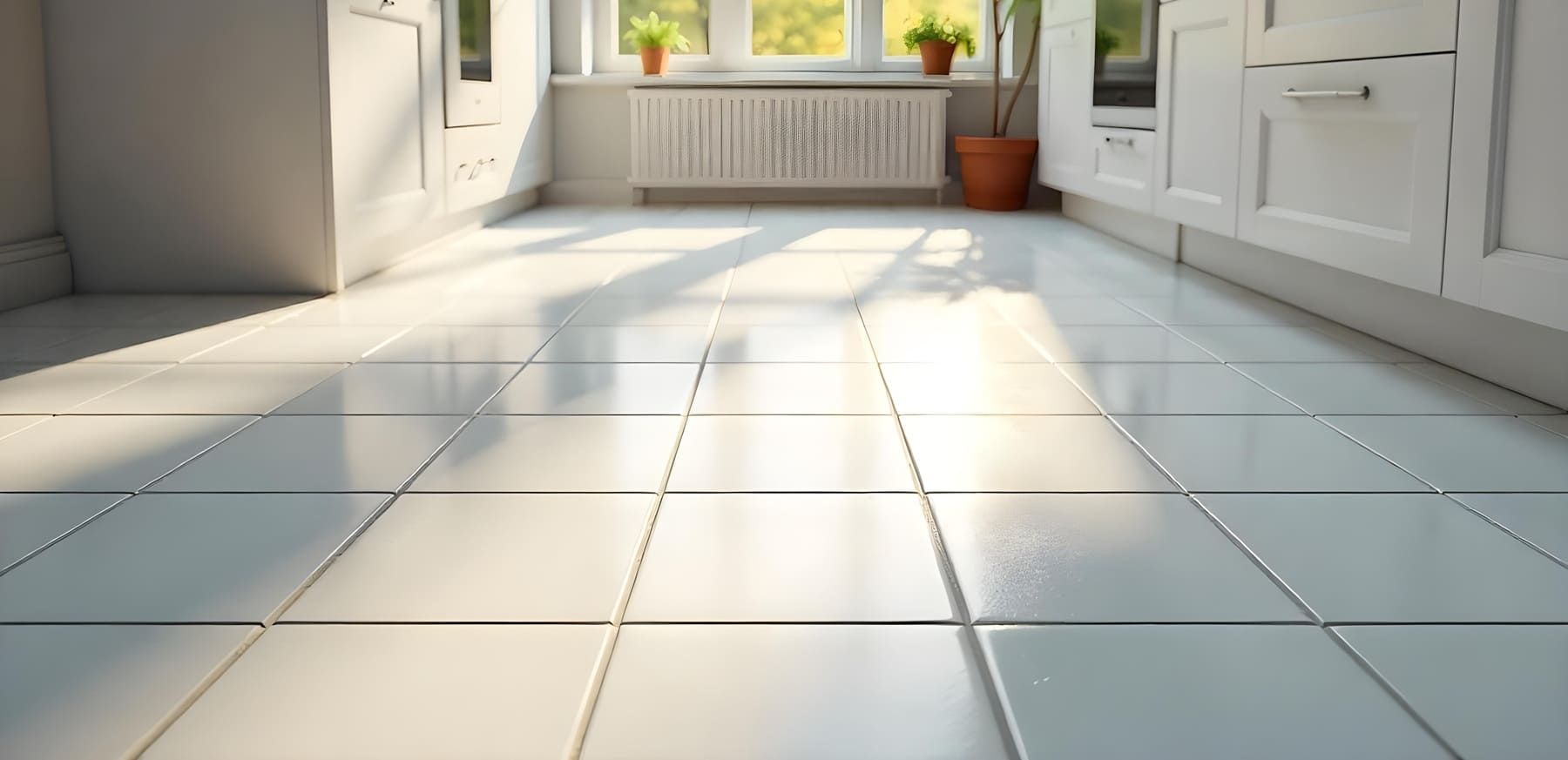
What Causes Grout Discoloration?
Grout discoloration can be attributed to a variety of factors. Let's explore the most common causes of this unsightly problem.
Moisture and Mold Growth
One of the primary causes of grout discoloration is moisture. Bathrooms, kitchens, and other high-humidity areas are especially prone to moisture accumulation. When grout absorbs moisture, it becomes a breeding ground for mold and mildew, which can cause the grout to darken over time.
Mold not only discolors grout but can also pose health risks if left untreated. Regular cleaning and proper ventilation can help mitigate this issue and keep mold at bay.
Dirt and Stains
Everyday use of tiled surfaces can lead to dirt buildup, which inevitably discolors grout. Dust, dirt, and grime accumulate on tiles and grout, especially in high-traffic areas such as kitchens and entryways.
Additionally, spills from food, beverages, and cleaning agents can seep into the grout and leave behind stains. Acidic or colored substances are particularly notorious for causing discoloration.
Improper Sealing
Grout is porous by nature, which means it can easily absorb liquids and stains. To prevent this, it is crucial to seal grout properly after installation and reseal it regularly.
Improper or infrequent sealing leaves grout vulnerable to moisture and stains, which accelerates discoloration. If you notice your grout turning dark, it might be time to assess whether it needs resealing.
Cleaning Products
Surprisingly, some cleaning products can cause grout to discolor. Harsh chemicals, bleach, and acidic cleaners can strip grout of its protective sealant, making it more susceptible to staining.
Opt for pH-neutral cleaners specifically designed for tile and grout to avoid unintended damage and discoloration.
Poor Installation
In some cases, grout discoloration can be traced back to poor installation practices. If grout is not mixed or applied correctly, it can lead to uneven curing and discoloration.
Hiring a professional to install your tiles and grout ensures that the job is done right and minimizes the risk of future discoloration issues.
Opt for pH-neutral cleaners specifically designed for tile and grout to avoid unintended damage and discoloration.
How to Prevent Grout Discoloration
Now that you understand what causes grout discoloration, let's discuss some preventive measures to keep your grout looking as good as new.
Regular Cleaning
Consistent cleaning is key to preventing grout discoloration. Use a soft brush and a mild cleaner to scrub grout lines regularly. This helps remove dirt and grime before they have a chance to settle in and stain the grout.
For stubborn stains, a paste made of baking soda and water can be an effective natural cleaner. Apply the paste to the grout lines, let it sit for a few minutes, then scrub gently and rinse with water.
Proper Ventilation
In areas prone to moisture, such as bathrooms, proper ventilation is essential. Use exhaust fans or open windows to reduce humidity levels and prevent mold growth. After showering or bathing, wipe down tiles and grout to remove excess moisture.
Sealing Grout
Sealing grout is one of the most effective ways to prevent discoloration. Apply a high-quality grout sealant after installation and reseal every six months to a year, depending on the level of use and exposure to moisture.
Make sure to follow the manufacturer's instructions for the best results.
Choosing the Right Cleaning Products
Select cleaning products that are safe for both tiles and grout. Avoid using harsh chemicals and abrasive tools that can damage grout. Instead, opt for pH-neutral cleaners that effectively clean without stripping sealants.
Professional Installation
If you're planning a new tile installation, hire a professional to ensure the grout is applied correctly. A skilled installer will use the right techniques and materials to prevent future discoloration issues.
Addressing Existing Grout Discoloration
If your grout has already turned dark, don't despair. There are ways to restore its original appearance.
Deep Cleaning
For mild discoloration, a deep cleaning might be sufficient to restore grout. Use a grout brush and a specialized cleaner to scrub away stains. For more stubborn stains, consider renting a steam cleaner, which can effectively lift dirt and grime from grout lines.
Grout Staining or Coloring
If cleaning doesn't achieve the desired results, grout staining or coloring might be an option. Grout stains are available in various colors and can be applied directly over existing grout to refresh its appearance.
Regrouting
In severe cases of discoloration or damage, regrouting might be necessary. This involves removing the old grout and applying new grout to the tiles. While more labor-intensive, regrouting can give your tiled surface a completely refreshed look.
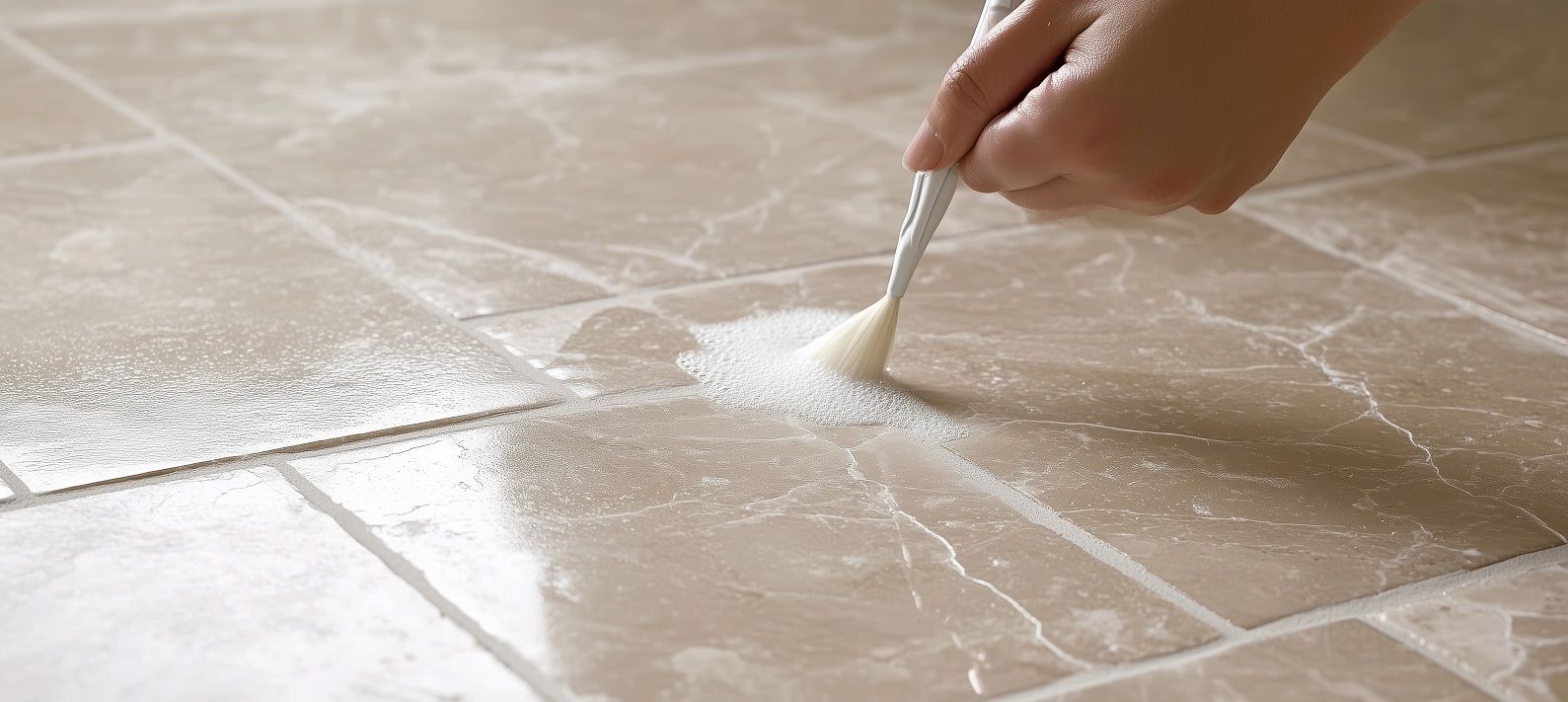
Conclusion
Understanding what causes grout discoloration and taking proactive measures can help you maintain the pristine appearance of your tiled surfaces. At Desert Tile & Grout Restore, we serve Glendale, Scottsdale, Phoenix, and Maricopa County, offering top-tier stone, tile, and floor refinishing & restoration services. Regular cleaning, proper ventilation, sealing, and selecting the right cleaning products are all crucial steps in preventing grout discoloration.
In cases where discoloration has already occurred, our expert team provides deep cleaning, grout staining, and regrouting to restore the original beauty of your grout. By following these guidelines and utilizing our professional services, you can keep your grout looking clean and vibrant for years to come. Contact us today for a free estimate and let Desert Tile & Grout Restore help you maintain the elegance and longevity of your tiled surfaces.
FAQ: Understanding and Addressing Grout Discoloration
What causes grout to turn dark over time?
- Moisture and Mold: Grout absorbs water, creating a breeding ground for mold and mildew.
- Dirt and Debris: Everyday foot traffic and spills deposit dirt into porous grout.
- Improper Cleaning: Using harsh chemicals or dirty mops can worsen discoloration.
- Soap Scum: Residue from cleaning products can build up and darken grout.
Can hard water cause grout discoloration?
Yes! Hard water leaves behind mineral deposits that stain grout, especially in showers and near faucets. Over time, these deposits can create unsightly dark patches.
How can I prevent grout discoloration?
- Seal Your Grout: Apply a high-quality grout sealant to protect against moisture and stains.
- Clean Regularly: Use a pH-neutral cleaner to prevent dirt and soap buildup.
- Dry After Use: Wipe down grout in high-moisture areas like bathrooms to reduce mold and mildew growth.
Is dark grout always a sign of mold or mildew?
Not always. While mold and mildew are common culprits, discoloration can also result from dirt, cleaning product buildup, or natural aging of the grout material.
Can grout discoloration be reversed?
Yes, discoloration can often be reversed with:
- Deep Cleaning: Use specialized grout cleaners or a baking soda and vinegar solution.
- Professional Cleaning: Experts use advanced tools to restore grout to its original color.
- Re-grouting: For severely stained or damaged grout, replacing it may be the best solution.
What products are safe to use for cleaning grout?
- pH-Neutral Cleaners: Gentle on grout while effectively removing dirt.
- Hydrogen Peroxide and Baking Soda: A natural solution for tackling tough stains.
- Grout-Specific Cleaners: Designed to target dirt and discoloration without causing damage. Avoid bleach, as it can weaken grout over time.
When should I call a professional for grout discoloration?
- Severe Staining: If DIY cleaning doesn’t restore the grout color.
- Recurring Mold or Mildew: Persistent issues may require professional remediation.
- Worn-Out Grout: Professionals can re-grout or seal the area for long-term results.

